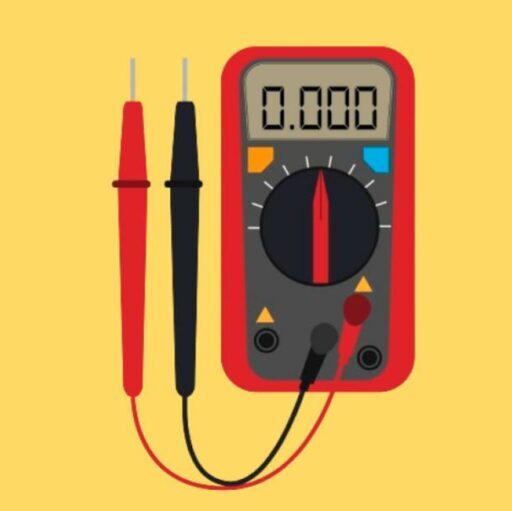Fluke’s compact multimeters are popular among technicians, students, and DIY users who need accuracy in a portable form. The Fluke 101 and Fluke 107 are two widely compared models.
🏷️ Fluke Multimeter Deals ⭐⭐⭐⭐
At first glance, they look very similar — both are small, reliable, and budget-friendly — but there are important differences in functionality.
Table of Contents
📋 Overview of the Fluke 101
The Fluke 101 is the entry-level option in Fluke’s compact multimeter lineup. It’s designed for quick, basic electrical measurements.
Key Features:
- Measures AC/DC voltage, resistance, continuity, and frequency.
- CAT III 600V safety rating.
- 2000-count digital display.
- Extremely lightweight (around 160 g).
- Affordable and durable.
- ❌ No current or capacitance measurement.
Best For: Beginners, homeowners, and professionals who need a secondary meter for quick checks.
⚡ Overview of the Fluke 107
The Fluke 107 is a step up from the 101, offering more measurement capability while keeping the same portable size.
Key Features:
- Measures AC/DC voltage, resistance, continuity, frequency, and capacitance.
- Measures current up to 10A (something the 101 cannot do).
- True-RMS for accurate AC readings.
- CAT III 600V safety rating.
- Compact, but slightly heavier than the 101.
- Comes with a data hold function and a backlight for easier use.
Best For: Technicians, students, or hobbyists who want a compact yet versatile meter for more than just basic voltage checks.
⚖️ Fluke 101 vs 107: Side-by-Side
| Feature | Fluke 101 | Fluke 107 |
|---|---|---|
| Size & Weight | Very light, pocket-sized | Compact, slightly heavier |
| Voltage Measurement | ✅ Yes | ✅ Yes |
| Resistance/Continuity | ✅ Yes | ✅ Yes |
| Frequency | ✅ Yes | ✅ Yes |
| Current Measurement | ❌ No | ✅ Up to 10A |
| Capacitance | ❌ No | ✅ Yes |
| True-RMS | ❌ No | ✅ Yes |
| Display Backlight | ❌ No | ✅ Yes |
| Data Hold | ❌ No | ✅ Yes |
| Safety Rating | CAT III 600V | CAT III 600V |
| 💳 Pricing | 💲Check Price | 💲Check Price |
✅ Pros and Cons
Fluke 101
✔ Affordable entry-level option
✔ Very lightweight and portable
✔ Reliable for basic electrical testing
✘ No current or capacitance measurement
✘ Lacks True-RMS and backlight
Fluke 107
✔ True-RMS accuracy for AC loads
✔ Measures current and capacitance
✔ Backlight and data hold functions
✔ Still compact and portable
✘ Higher price than the 101
📝 Which One Should You Choose?
- Choose the Fluke 101 if you want a simple, budget-friendly multimeter for quick electrical checks at home or on the go.
- Choose the Fluke 107 if you need a compact but more capable meter with current and capacitance measurement, True-RMS, and a backlit display.
In short, the Fluke 101 is the minimalist’s meter, while the Fluke 107 is the feature-rich compact tool for more demanding users.






